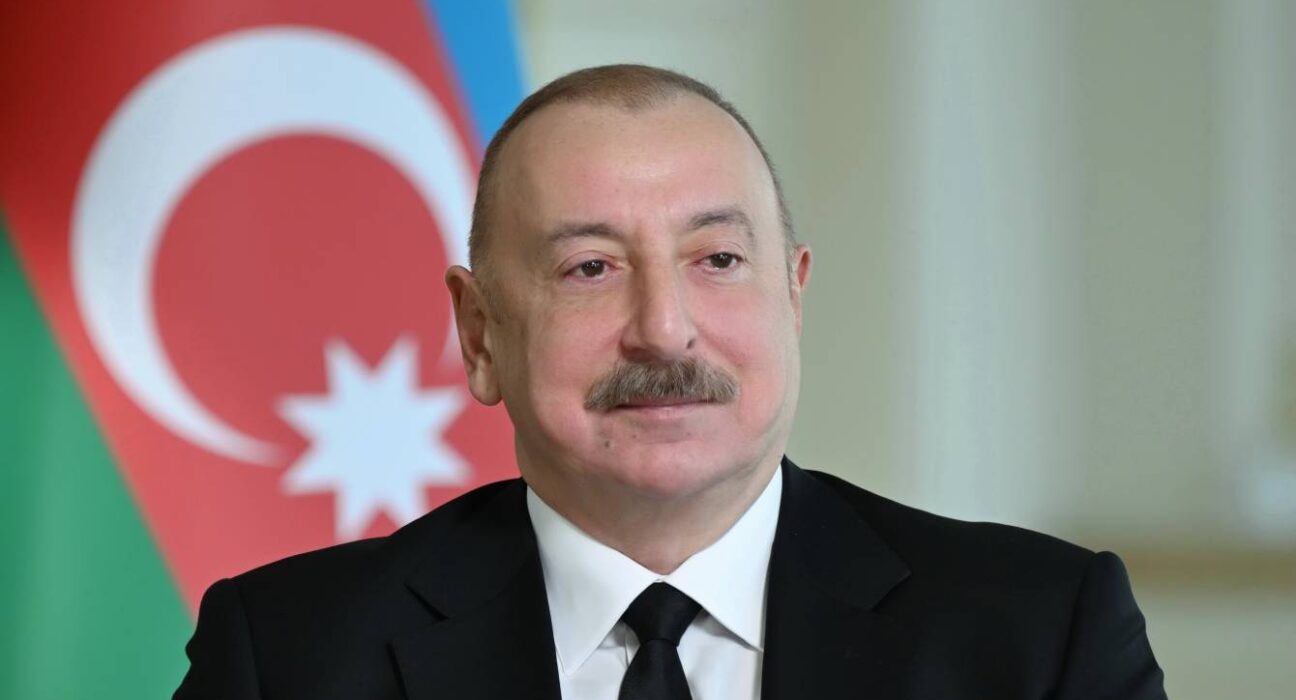Ahead of his state visit to Kazakhstan, which begins on October 21, the President of Azerbaijan, Ilham Aliyev, gave an exclusive interview to Kazinform News Agency. In the interview, published on the official website of the Azeri president, Aliyev spoke about his view of bilateral cooperation with Kazakhstan and ongoing partnerships in trade, transport, energy, and environmental issues.
According to Aliyev, the political relations between Azerbaijan and Kazakhstan today are distinguished by a high degree of strength and mutual trust. “Over the past decades, based on the historical bonds of brotherhood, friendship, and mutual support, as well as on the solid foundation of our shared Turkic identity, similar cultural traditions, and spiritual values of our peoples, we have built relations of genuine strategic and allied partnership,” he said, adding that over the past three years, this will be his seventh visit to the brotherly Kazakhstan.
Aliyev noted the steady growth of trade and economic interaction. In 2024, the volume of trade turnover between the two countries amounted to $470 million, and from January to August 2025 it reached $547 million, exceeding the same period of the previous year by more than threefold. This growth is due to the effective use of the Middle Corridor’s potential and the systematic modernization of transport and logistics infrastructure.
Azerbaijani investments in Kazakhstan’s economy have reached $225 million, while Kazakh investments in Azerbaijan total $136 million, Aliyev said.
The Azeri leader believes that transport and logistics cooperation between Azerbaijan and Kazakhstan is a strategically important direction that opens new opportunities for economic growth and the integration of regional markets. The volume of transit shipments between Azerbaijan and Kazakhstan in 2024 exceeded 3.5 million tons, 20% higher than in the previous period. The Middle Corridor plays a key role in ensuring stable and efficient connectivity between the two countries.
Aliyev reminded that in 2022, in the city of Aktau, the “Roadmap for 2022–2027 on the Development and Operation of the Middle Corridor” was signed, covering the territories of Türkiye, Azerbaijan, and Kazakhstan. The document provides for the synchronized development of the transport and logistics infrastructure of the three countries, optimization of operations, attraction of additional cargo flow, implementation of a unified tariff policy, development of a network of logistics centers, and resolution of other key issues.
Another significant infrastructure project is the construction of submarine fiber-optic communication lines along the bottom of the Caspian Sea between Kazakhstan and Azerbaijan. The construction contract was signed in March 2025 in Baku, with completion planned for the end of 2026, which will strengthen digital integration.
In the oil and gas sector, a general agreement on the transit of Kazakh oil with a volume of 1.5 million tons per year via the Aktau–Ceyhan route has been signed between SOCAR and the National Company KazMunayGas. In 2024, an agreement was signed on the phased increase of transit volumes and reduction of tariffs.
According to Aliyev, one of the most pressing problems is the shallowing and the rapid decline in the water level of the Caspian Sea, which poses both ecological and economic threats. “At the Sixth Caspian Summit, held in 2022, I raised the issue of ecological imbalance in the Caspian Sea. Unfortunately, since then, the situation has only worsened. The water level in the Caspian Sea is rapidly declining, and the reasons for this lie not only in climate change. In this situation, it is extremely important for all Caspian littoral states to establish close cooperation, actively exchange scientific information, and develop coordinated measures to mitigate the consequences,” he said.
Aliyev believes that Azerbaijan, Kazakhstan, and other Caspian states can and should actively promote initiatives for the protection of the Caspian Sea at regional and international platforms. “Amid growing transnational environmental risks, the Caspian Sea is no longer merely a body of water but has become a symbol of our shared responsibility and the necessity for united action.”
